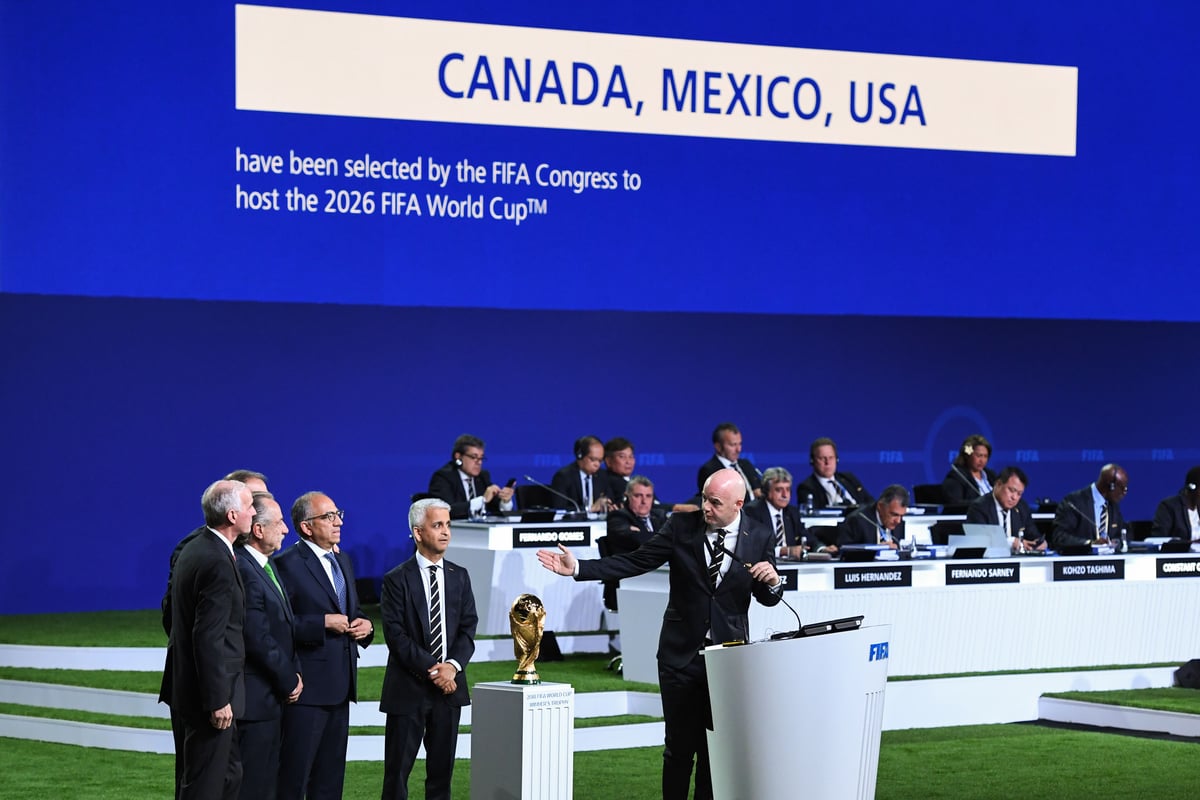As the global football calendar once again pauses for the international break, the journey toward the much-anticipated 2026 FIFA World Cup gains significant momentum. This period offers a unique snapshot of the sport`s sprawling ecosystem: from the serene preparations of host nations to the fierce, nail-biting battles for qualification, all set against a backdrop of complex geopolitical realities.
The Uncommon Path of the Hosts: A Blessing and a Burden
For the United States, Canada, and Mexico, the upcoming World Cup carries a distinct flavor. As host nations, their tickets to the grand spectacle are already punched, sidestepping the often brutal and unforgiving gauntlet of qualifiers. While this grants them the luxury of foresight and meticulous planning, it also presents a peculiar challenge: how to forge a battle-hardened squad without the crucible of competitive play?
The USMNT, for instance, finds itself in an enviable yet slightly ironic position. With their spot guaranteed, these international breaks become prime opportunities for experimentation, squad rotation, and team cohesion. Yet, after a Gold Cup final loss and a September friendly defeat, one might wonder if the absence of high-stakes qualifiers might inadvertently soften their edge. Friendlies against Ecuador and Australia, though valuable, lack the existential pressure that hones a team for the global stage. It’s a delicate balance: building momentum without the adrenaline of true qualification do-or-die scenarios.
The Global Gauntlet: Fierce Fights for Forty-Eight Spots
Beyond the host nations, the narrative shifts dramatically to a landscape defined by unyielding competition. With 18 teams already having secured their place among the expanded 48-nation field, the race intensifies for the remaining coveted spots. From the tactical chess matches of AFC qualifiers to the passionate clashes in CONMEBOL, every match carries immense weight.
Teams like Japan, Iran, South Korea, Uzbekistan, Jordan, and Australia have navigated the demanding AFC third round with clinical precision. In South America, footballing giants Argentina, Brazil, and Uruguay have asserted their dominance, joined by Ecuador, Paraguay, and Colombia. Africa’s representatives, Morocco and Tunisia, have also etched their names onto the preliminary roster. Meanwhile, New Zealand emerged as the champions of Oceania. This international break is particularly crucial for European teams, whose qualification campaigns, having started later, are now entering their most decisive phases. The drama, the upsets, the last-gasp goals – these are the ingredients of football’s most compelling narrative.
When Geopolitics Invades the Pitch: A Troubling Subplot
Yet, the beautiful game is not immune to the harsh realities of the world. This international break highlights an uncomfortable, but unavoidable, intersection of sport and geopolitics. The call by a group of United Nations experts to suspend Israel from international competition, citing ongoing conflict in the Occupied Palestinian Territory, casts a somber shadow over scheduled matches. While the immediate suspension appears unlikely, the repercussions are palpable.
Israel`s upcoming matches, particularly against Italy, are poised to be more than just sporting contests. Protests and calls for boycotts underline the deep divisions and strong sentiments that can spill over from global events onto the football pitch. It`s a stark reminder that even in the pursuit of sporting glory, the human element, and the broader world context, remain ever-present and influential.
Gazing Towards the Horizon: The Path Ahead
As the final whistle blows on this international window, the focus will soon shift to the next milestones: the much-anticipated World Cup draw in Washington D.C. on December 5th, where the initial group stage pairings will begin to take shape. While four UEFA playoff winners and two inter-confederation playoff winners will only be determined in March 2026, the framework of the tournament is rapidly solidifying.
The 2026 World Cup promises to be a landmark event, an expansive celebration of football across three nations. But the journey there is a complex tapestry woven with threads of athletic ambition, strategic planning, unexpected challenges, and, occasionally, the profound weight of global affairs. This international break was not merely a series of matches; it was another critical chapter in the unfolding saga of the world`s most beloved tournament.

